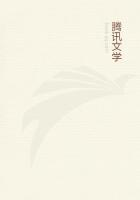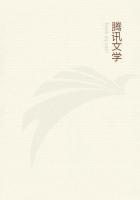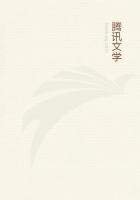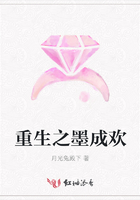The bookseller's booth is arched over, and is open at front and side. Dorimant and Cleante are looking out; one leans on the books on the window-sill, the other lounges at the door, and they watch the pretty Hippolyte who is chaffering with the lace-seller at the opposite shop. "Ce visage vaut mieux que toutes vos chansons," says Dorimant to the bookseller. So they loitered, and bought books, and flirted in their lace ruffles, and ribbons, and flowing locks, and wide canons, when Moliere was young, and when this little old book was new, and lying on the shelves of honest Quinet in the Palace Gallery. The very title-page, and pagination, not of this second edition, but of the first of "Les Fascheux," had their own fortunes, for the dedication to Fouquet was perforce withdrawn. That favourite entertained La Valliere and the King with the comedy at his house of Vaux, and then instantly fell from power and favour, and, losing his place and his *******, naturally lost the flattery of a dedication. But retombons a nos coches, as Montaigne says.
This pleasant little copy of the play, which is a kind of relic of Moliere and his old world, has been ruthlessly bound up with a treatise, "Des Pierres Precieuses," published by Didot in 1776. Now the play is naturally a larger book than the treatise on precious stones, so the binder has cut down the margins to the size of those of the work on amethysts and rubies. As the Italian tyrant chained the dead and the living together, as Procrustes maimed his victims on his cruel bed, so a hard-hearted French binder has tied up, and mutilated, and spoiled the old play, which otherwise would have had considerable value as well as interest.
We have tried to teach the beginner how to keep his books neat and clean; what men and monsters he should avoid; how he should guard himself against borrowers, book-worms, damp, and dirt. But we are sometimes compelled to buy books already dirty and dingy, foxed, or spotted with red, worn by greasy hands, stained with ink spots, or covered with MS. notes. The art of man has found a remedy for these defects. I have never myself tried to wash a book, and this care is best left to professional hands. But the French and English writers give various recipes for cleaning old books, which the ******* may try on any old rubbish out of the fourpenny box of a bookstall, till he finds that he can trust his own manipulations. There are "fat stains" on books, as thumb marks, traces of oil (the midnight oil), flakes of old pasty crust left in old Shakespeares, and candle drippings. There are "thin stains," as of mud, scaling-wax, ink, dust, and damp. To clean a book you first carefully unbind it, take off the old covers, cut the old stitching, and separate sheet from sheet. Then take a page with "fat stains" of any kind of grease (except finger-marks), pass a hot flat iron over it, and press on it a clean piece of blotting paper till the paper sucks up the grease.
Then charge a camel-hair brush with heated turpentine, and pass it over the places that were stained. If the paper loses its colour press softly over it a delicate handkerchief, soaked in heated spirits of wine. Finger-marks you will cover with clean soap, leave this on for some hours, and then rub with a sponge filled with hot water. Afterwards dip in weak acid and water, and then soak the page in a bath of clean water. Ink-stained pages you will first dip in a strong solution of oxalic acid and then in hydrochloric acid mixed in six times its quantity of water. Then bathe in clean water and allow to dry slowly.
Some English recipes may also be given. "Grease or wax spots," says Hannett, in "Bibliopegia," "may be removed by washing the part with ether, chloroform, or benzine, and placing it between pieces of white blotting paper, then pass a hot iron over it." "Chlorine water," says the same writer, removes ink stains, and bleaches the paper at the same time. Of chloride of lime, "a piece the size of a nut" (a cocoa nut or a hazel nut?) in a pint of water, may be applied with a camel's hair pencil, and plenty of patience. To polish old bindings, "take the yolk of an egg, beat it up with a fork, apply it with a sponge, having first cleaned the leather with a dry flannel." The following, says a writer in "Notes and Queries," with perfect truth, is "an easier if not a better method;purchase some bookbinder's varnish," and use it as you did the rudimentary omelette of the former recipe. Vellum covers may be cleaned with soap and water, or in bad cases by a weak solution of salts of lemon.
Lastly, the collector should acquire such books as Lowndes's "Bibliography," Brunet's "Manuel," and as many priced catalogues as he can secure. The catalogues of Mr. Quaritch, Mr. Bohn, M.
Fontaine, M.M. Morgand et Fatout, are excellent guides to a knowledge of the market value of books. Other special works, as Renouard's for Aldines, Willems's for Elzevirs, and Cohen's for French engravings, will be mentioned in their proper place.
Dibdin's books are inaccurate and long-winded, but may occasionally be dipped into with pleasure.


